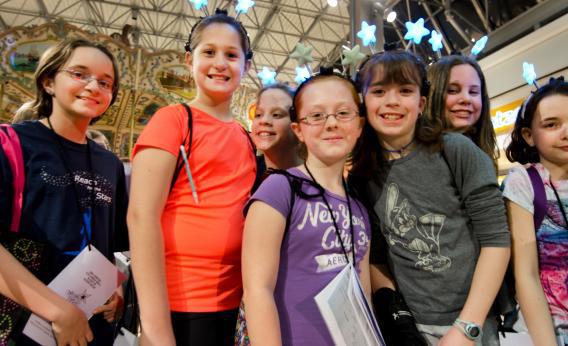When I was in high school, I regularly woke up early on Saturday mornings and drove out to one of Massachusetts’ medium-security prisons. I was a Girl Scout, and these prison visits were part of the Girl Scouts Beyond Bars program, where I helped lead a troop of girls whose mothers were incarcerated. In the prison’s visiting room, we worked on badge activities together, and outside of that room, the mothers took part in intensive training programs that would help them build more secure lives for their daughters when they were released. By that point, I’d sold cookies by the caseful, learned how to make camping stoves out of tomato cans, and owned vests and sashes covered in badges. But it was Girl Scouts Beyond Bars that made me really prepared for the world around me, and is the experience that I associate most with scouting. And because of it, I wasn’t at all surprised to read this morning in Mother Jones that 60 percent of the women in the incoming Congress—including 70 percent of women Senators—were once Girl Scouts.
While the Boy Scouts organization has been making national headlines for its persistent homophobia and pedophilia problem, the Girl Scouts has remained pretty much under the radar by focusing on giving girls the skills to pursue avenues that might have been closed to them in the past. Thin Mints might be what most people associate with the Girl Scouts, but the organization is more concerned with leadership training and community service than it is with your Tagalong habit. It makes perfect sense to me that both Tammy Baldwin of Wisconsin, who will become the first openly gay person to serve in the Senate, and her new colleague Deb Fischer, a Republican from Nebraska, were both Girl Scouts. They, and their fellow Senator-elect Elizabeth Warren of Massachusetts, would have gotten from the Girl Scouts a sense that almost anything was possible for them. What they chose to do with that belief, and the tools they picked up in scouting, was up to them.
By contrast, the biggest political star the Boy Scouts have produced in recent years is probably Eagle Scout Zach Wahls. At 19, Wahls, whose mothers are lesbians, became famous when he testified before the Iowa House of Representatives, opposing a proposed amendment to the state’s constitution that would have banned marriages between same-sex couples. Since then, Wahls has used the national profile he earned in that fight, and his status as an Eagle Scout, to push the Boy Scouts of America to reverse their exclusion of gay Scouts, gay scout leaders, and gay den parents. He’s exactly the kind of leader the Boy Scouts should be glad to claim, particularly given the bright political future before him. But Wahls’ emergence as a national figure—he addressed the Democratic convention this summer—was in part due to his ability to move beyond the Boy Scouts’ stated values.
This isn’t to say that there’s nothing good about the Boy Scouts, and I’m sure many of you will write in to tell me just what. But by spending their public capital on an insistence that members should conform, rather than on a Girl Scout-like approach of giving as many young people as possible the tools that will help them become good adults, regardless of sexual orientation or anything else, the Boy Scouts are turning away from the world opening up in front of them. It’s not exactly the best way to live up to the Scouting pledge of “be prepared.”
